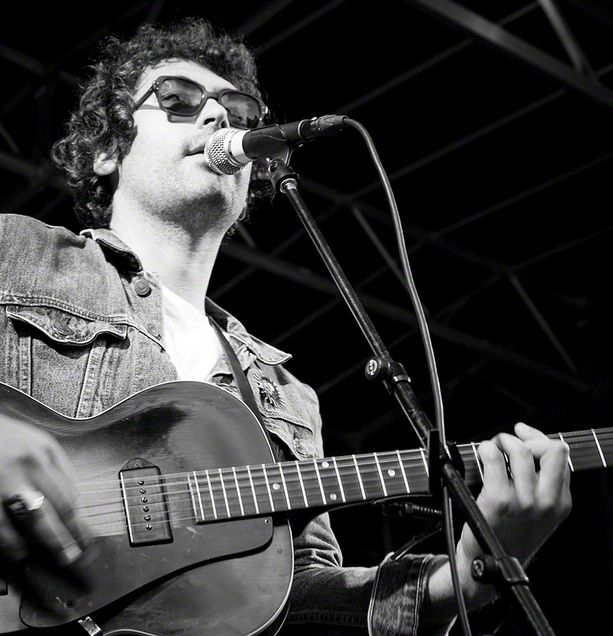INTERVIEW: Miles Michaud of Allah-Las

WTBU DJ Emily Pintor recently spoke to Miles Michaud, the lead singer of the Allah-Las, about the band’s beginnings, their latest album, and college radio. The LA native surf rock band is playing Brighton Music Hall on March 25 at 8 p.m. with Babe Rainbow.
Emily Pintor: So let’s start with the basics; how did the Allah-Las come together? I know that three of you guys worked at Amoeba, but did you purposely put the band together or did you all just start jamming one day?
Miles Michaud: Yeah, we just started to hang out and jam together. Like a few weeks after we started, some of our friends asked us to play their Halloween party in their backyard, and we were happy to accept the offer. We didn’t really have any songs; we just kind of improvised, but we put together some stuff and it sounded cool so that gave us the motivation to keep going. We played whatever we could.
EP: When you guys first started playing together did everyone seem to be on the same page? Was there a cohesive sound?
MM: I actually think that’s why the Allah-Las started. We all had similar taste in music and when we got together to play, it just kind of came out. It was something we were all happy with.
EP: From what I’ve seen and read you guys all seem to have very informative depths of musical knowledge. You all are so insightful, which is awesome, but do you ever think that hinders your musical process? Maybe makes you too aware of what you’re doing like, “Oh that riff sounds like that band” etc.
MM: I think it actually helps us externally. We just have a higher standard of what we want to create. It’s sort of become prerogative to meet our standards, and people seem to appreciate it.
EP: Congratulations on releasing your third album. Did you guys go about recording this one differently or was it just about the same as the first two?
MM: Well, song structure was a little different. We had released two albums and been on the road for some time, so this time everyone was writing a lot more stuff and would individually bring it here to the studio and then kind of piece it all together. From there, we would all work on it together, so actually the same process in the recording studio, but more ideas that came individually.
EP: Writing and producing the record and then touring the record are both integral parts of a successful band; which do you enjoy more? Or are they both just as satisfying in different ways?
MM: Well I think there’s moments in the studio when you get really frustrated, and also moments on tour when you get really burned out, but there’s great things about those, too. But I think the best feeling for me is listening to the final product after months and months of working on it—being able to hear it and play it knowing that it’s done. When you think about it, that’s the most rewarding thing I think.
EP: When you all go in to make a new record, what outlook do you take on it? Do you try to evolve the sound you already have or experiment with something new?
MM: A bit of both. We always try to incorporate some things that will create a new sound. It’s actually what we’re working on right now; we’re at the studio right now working on something new. So right now I’m taking a little break sitting outside.
EP: That’s awesome; you guys clearly keep busy. I read recently that you were a college radio show host for some time. WTBU has many radio DJ’s, myself included, so I’m just wondering what you got out of your experience?
MM: Well it was tough, because I started from 2 a.m. to 6 a.m., so that was a little rough, but I eventually got moved from 9 a.m. to noon. But I think what was cool about it was getting feedback from people who would listen and were really stoked about the music we were playing. It kind of opened up that idea that there were people out there other than my friends that were interested in this music I really liked. I guess that kind of translated into the band as well when we started. Now we all do a podcast and just take turns rotating what we’re going to play.
EP: In terms of the music, LA seems to be a great influence on the album. Your music videos are set there, and some lyrics pertain to specific places there, but I was just wondering what else was an influence on the album?
MM: Hard to say; there’s a lot of different things. Because a lot of songs were written individually and then brought to the album, everyone kind of brought their own themes and concepts. There are lot of different things, but Los Angeles comes through heavily moreso for listeners than for us I feel. We don’t necessarily see or hear that. It’s good to know that other people hear it though.